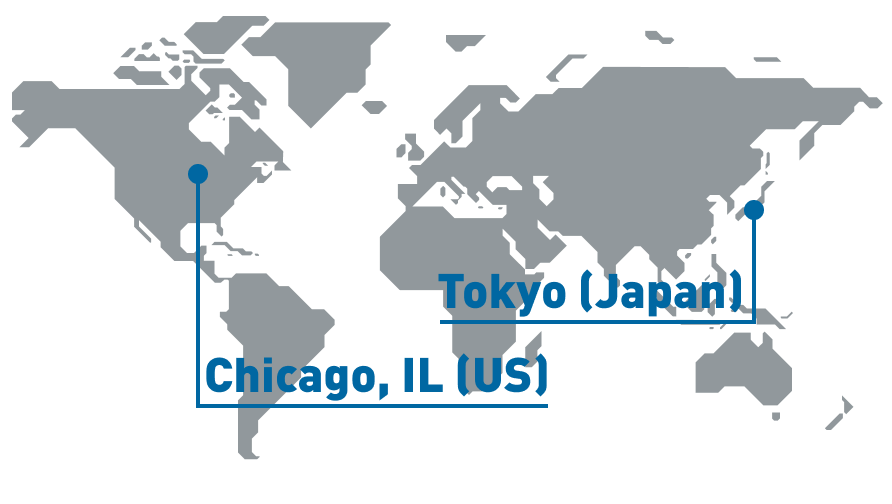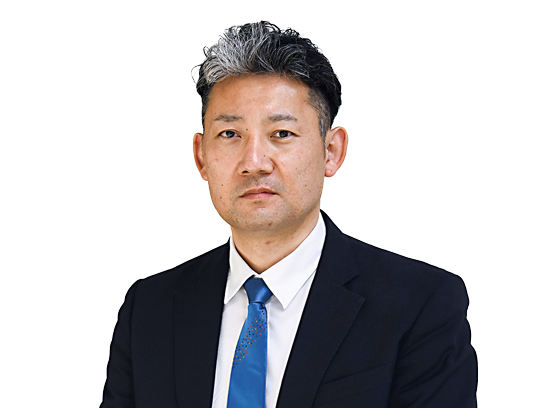From Chicago to Tokyo – overcoming distances as a team
A complex machine and a joint effort to set it up from 10‘000 kilometers away: The first installation of an MLTC machine in Japan, an ultrafast laser tube cutter, is a victory of team spirit and collaboration over complexity and time differences.
The process is normally straightforward when it comes to setting up the Microlution Ultrafast Laser Tube Cutter (MLTC). An applications engineer from GF Machining Solutions visits the customer’ s site to set up the machine, typically used for producing high-precision medical components. He or she trains the users in both hardware and software. Given the complexity of the machining process, the in-person aspect is critical.
But when a Japanese customer decided to enter the medical market in late 2019, the COVID-19 pandemic was only a few months away. The Tokyo-based company was interested in the MLTC laser tube cutting platform to produce medical marker bands: tiny tubes used in catheter surgeries.
 © private
© privatePrecision in the femtosecond range
These marker bands help surgeons place the catheters during procedures such as angioplasties. The MLTC machine uses laser impulses in the femtosecond range to prevent heat damage and minimize the need to rework parts. This means marker bands that are machined faster, more sustainably, more precisely and more cost-effectively due to less material loss. “I was confident that the customer could produce high-value products with our MLTC machine,” says Yasuhiro Wada, Microlution Business Development Manager at GF Machining Solutions in Tokyo. Wada was the customer’s first point of contact in Japan, from initial inquiry to installation. But for the project to succeed, he needed support from 10‘000 kilometers away. This is because the MLTC laser tube cutting platform is produced at GF Machining Solutions Microlution in Chicago (US). Mike Lerner, Sales Support Manager Microlution, and his team had the necessary expertise.
In early 2020, shortly after the project entered its crucial phase, Japan closed its borders. The world was in lockdown. Transferring the complex set-up processes for the MLTC machine remotely from the United States to Japan, with a team unable to travel and facing language and technical barriers, was a daunting prospect. “Setting up everything from afar and remotely was a big concern, but we always went forward with the assumption that we could make it work as a team,” says Lerner.
 © private
© private © Noriko Hayashir
© Noriko HayashirRelationships matter
Meanwhile, in Japan, Wada negotiated with the customer. At first, other machines from competitors were also in the running. However, having worked with GF in the past, the customer trusted the high quality of customer service at GF Machining Solutions – one of the key factors from his perspective.
What followed was an active phase of fine-tuning the machining process. That’s when the collaboration between the teams in Chicago and Tokyo kicked into gear. Among the driving forces at GF Machining Solutions Microlution were Alessio De Curtis, Applications Engineer and Ivan Sanchez, Test Engineer, who worked many nights to accommodate the time difference with Japan. Through frequent exchanges between Wada and the customer’s technical lead, as well as efficient closed-loop feedback, the team was able to define the requirements quickly and precisely.
The crucial test
The pandemic was in full swing once it was time for the Factory Acceptance Test (FAT) of the machine – the real- time proof that all the requirements had been met. Typically, the customer attends the test on-site in Chicago. Without the option of international travel, the customer joined remotely. The live video lasted several hours and was crucial because it showed the machine‘s accuracy and high quality. Based on the positive virtual FAT results, the customer gave the go-ahead to ship the machine.
 © private
© private © Noriko Hayashir
© Noriko HayashirIn early 2021, the Japanese team successfully installed it as the first MLTC laser outside of the US, even though they had never seen one before. Detailed documentation, remote training with the Chicago-based team and live video communication all helped it to cross the finish line. For parts programming, De Curtis trained Wada and Kengo Imamura, Application Manager at GF Machining Solutions Tokyo, at the same time as the customer. Helping each other is the “spirit of GF,” says Wada.
Model for future success
The customer now has an ultrafast laser tube cutter that allows the mass production of medical marker bands. Measures such as more detailed documentation and remote video FATs and programming are expected to improve the efficiency of installations and supplement the work of cross-regional GF teams, even beyond the pandemic. Meanwhile, the newly established expertise is helping to attract new business. The US team recently installed a Microlution ML-5 machine for an industrial micro- drilling and micro-cutting application in China – again remotely from Chicago.


